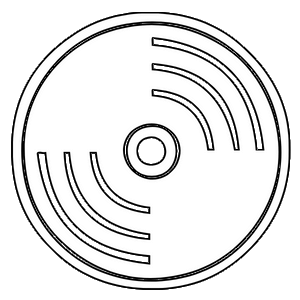At a time where the aviation industry is under incredibly high scrutiny, it’s crucial to make sure that you’re playing by the rules. As a result, meeting proper protocol and establishing best practices isn’t just in your customers’ best interests, it’s in your business’ best interest, too. One of the easiest ways to ensure that you are instilling your clients with that confidence is to follow DO-178C testing standards for all software your airline uses.
This is because all major aviation safety organizations, including the Federal Aviation Association and European Union Aviation Safety Agency, rely on DO-178C documentation to make sure that aeronautics software used commercially is on the up and up. If you’re weighing the pros and cons of whether or not to train your employees in DO-178C testing, here’s a quick guide to the pros and cons.
Pros of enrolling in DO-178C testing training
When it comes to safety, the more trust you can offer your customers and clients, the better. As a result, there is a variety of intangible, but nonetheless important benefits of ensuring that your engineers are skilled in DO-178C testing. This applies to the software you’re developing regardless of whether it poses a critical safety risk or a minor one since many small problems in an airplane’s technical system can compound to create even greater trouble. To be able to show to your clients and customers that your engineers have fulfilled rigorous DO-178C training from an outside company like AFuzion is thus a major boon for your business and its stakeholders.
Getting private training that draws on numerous publications for engineers on aeronautical safety can also deepen the amount of knowledge your engineers have about DO-178C protocol and documentation. Customization from a company like AFuzion can also ensure that everything your engineers learn is applicable to your sector and the software you’re developing.
This means that that technical skills and perspective shared with your engineers are much more likely to be retained since everything is tailored to the way that you are developing and implementing software. When it comes to demonstrating this knowledge, the result will thus be far more positive as execution will be relevant to your focus.
Cons of enrolling in DO-178C testing training
As with many types of training, two of the biggest cons of enrolling in DO-178C training are the financial and time-based commitment. Spending the money to properly train your engineers is not an insignificant cost. However, many businesses would agree that having direct, one-on-one instruction is going to be much more successful than simply offering a guidebook or technical manual to your engineers.
As a result, it may make more sense to pay for training for your engineers rather than leave them to their own devices. Finding the time to train each engineer can also be difficult; however, it is definitely the kind of training that is worth making time for. When safety is concerned, it is of the utmost importance to instill confidence in your staff and stakeholders, and DO-178C testing does just that. If your engineers don’t understand the basic safety protocol that regulatory agencies like the FAA look to in order to ensure the safety of all software systems, that can be an even worse drawback than spending time training them properly.
If you’re involved in developing software for aviation and aeronautics use, it’s pivotal that your engineers are aware of DO-178C documentation and how it affects your software. As a result, it’s a good idea to obtain training from an outside party that can share important information about DO-178C testing and the way that it impacts your business and software development. Finding a company like AFuzion may cost money and time, but it’s hard to argue against choosing an outside training program when it comes to ensuring the safety of the aviation sector.














